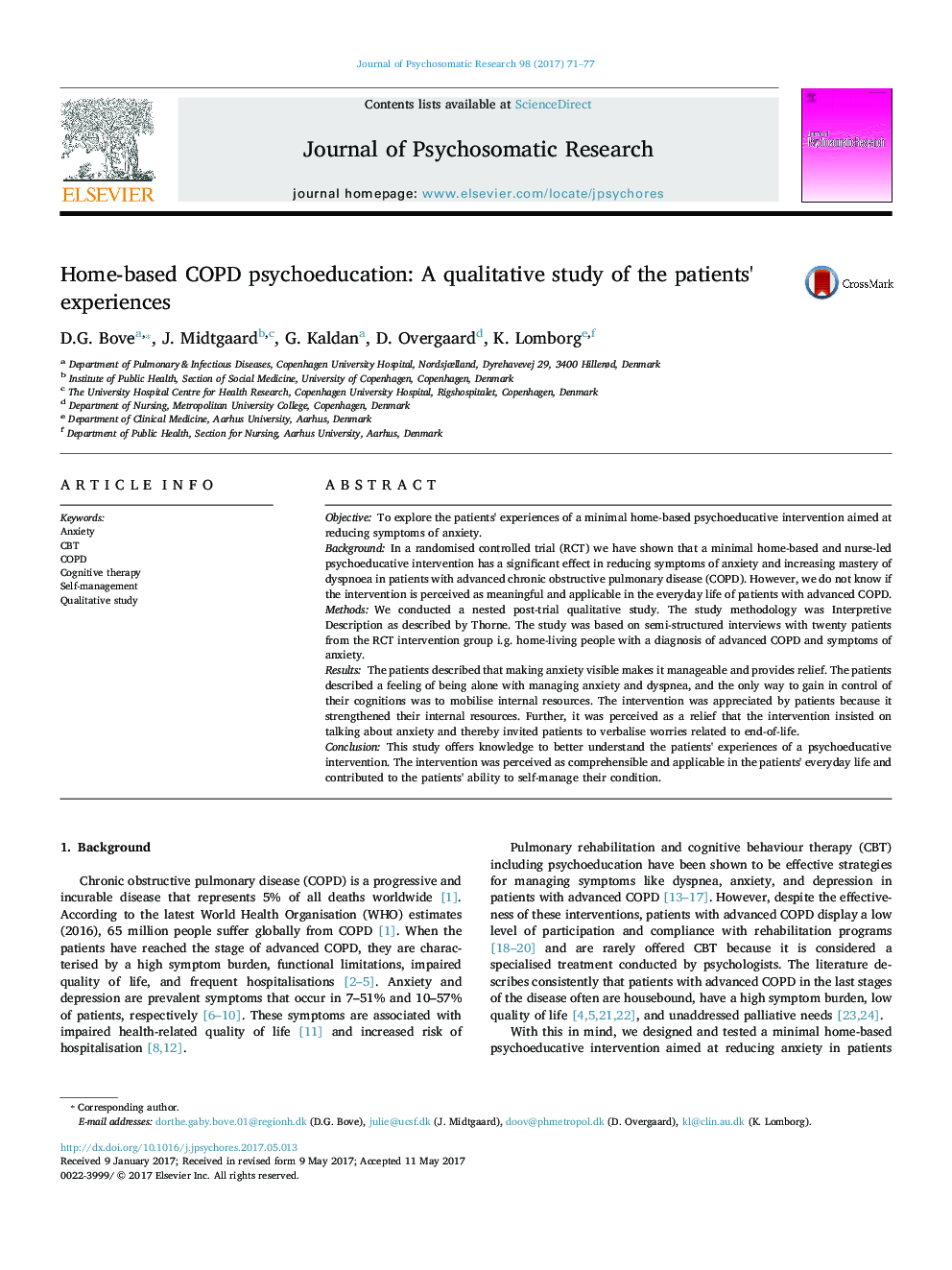| کد مقاله | کد نشریه | سال انتشار | مقاله انگلیسی | نسخه تمام متن |
|---|---|---|---|---|
| 5045942 | 1475897 | 2017 | 7 صفحه PDF | دانلود رایگان |

- Little is known about the patient perspective on self-management interventions.
- The psychoeducative intervention affects the patients' ability to self-manage their condition.
- The handouts inspired by CBT were meaningful in refreshing the key points of the intervention.
- The intervention offered a frame for initiating a dialogue about anxiety.
ObjectiveTo explore the patients' experiences of a minimal home-based psychoeducative intervention aimed at reducing symptoms of anxiety.BackgroundIn a randomised controlled trial (RCT) we have shown that a minimal home-based and nurse-led psychoeducative intervention has a significant effect in reducing symptoms of anxiety and increasing mastery of dyspnoea in patients with advanced chronic obstructive pulmonary disease (COPD). However, we do not know if the intervention is perceived as meaningful and applicable in the everyday life of patients with advanced COPD.MethodsWe conducted a nested post-trial qualitative study. The study methodology was Interpretive Description as described by Thorne. The study was based on semi-structured interviews with twenty patients from the RCT intervention group i.g. home-living people with a diagnosis of advanced COPD and symptoms of anxiety.ResultsThe patients described that making anxiety visible makes it manageable and provides relief. The patients described a feeling of being alone with managing anxiety and dyspnea, and the only way to gain in control of their cognitions was to mobilise internal resources. The intervention was appreciated by patients because it strengthened their internal resources. Further, it was perceived as a relief that the intervention insisted on talking about anxiety and thereby invited patients to verbalise worries related to end-of-life.ConclusionThis study offers knowledge to better understand the patients' experiences of a psychoeducative intervention. The intervention was perceived as comprehensible and applicable in the patients' everyday life and contributed to the patients' ability to self-manage their condition.
Journal: Journal of Psychosomatic Research - Volume 98, July 2017, Pages 71-77